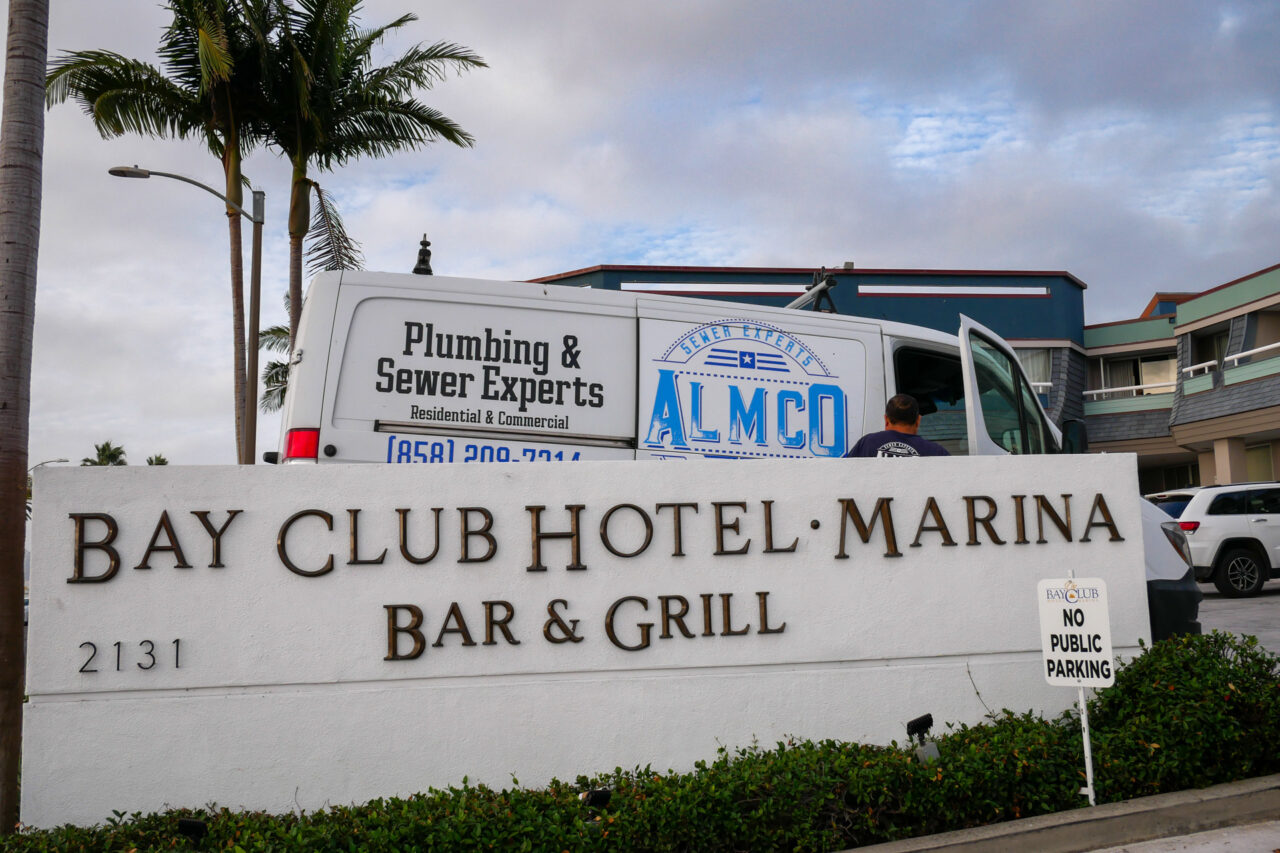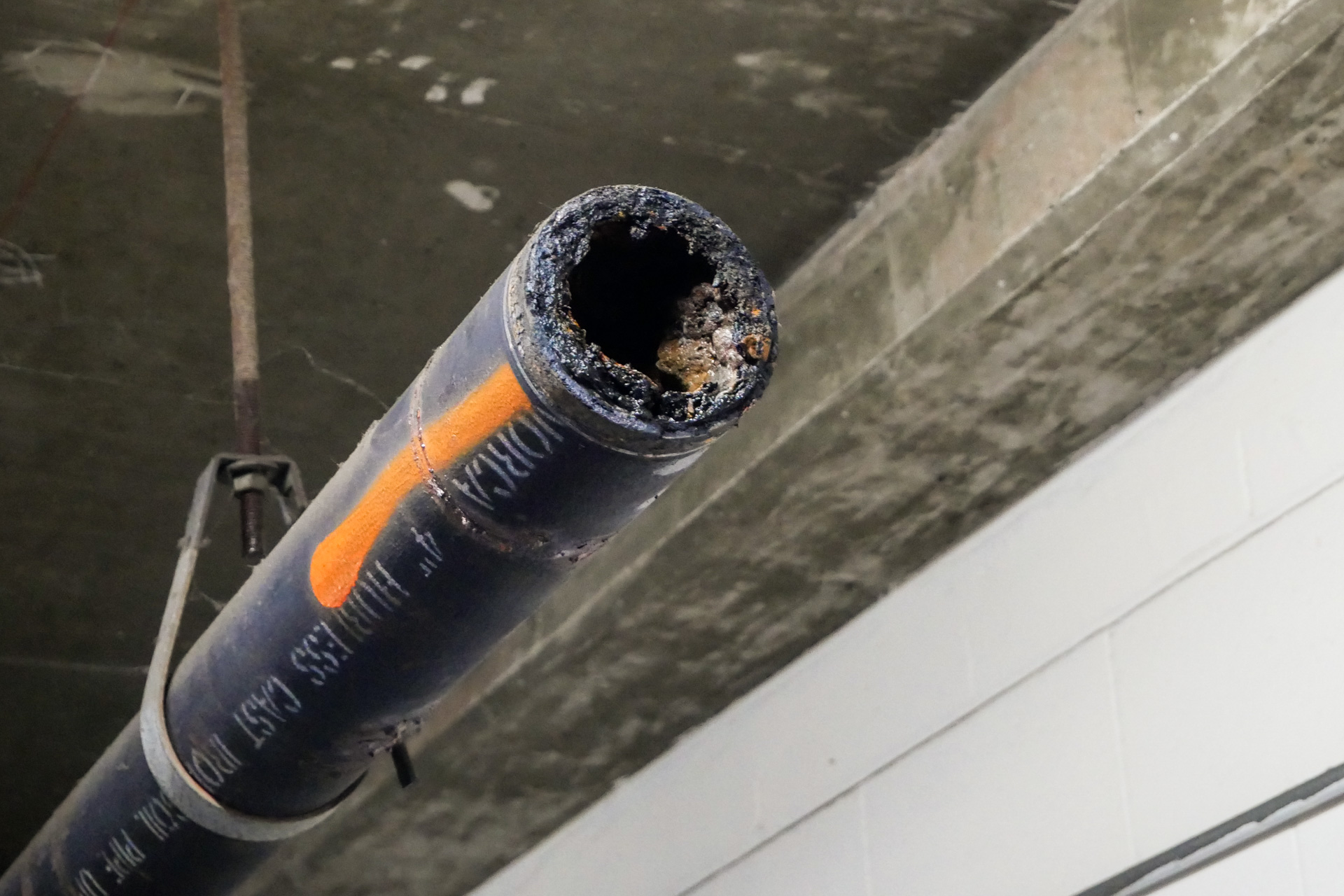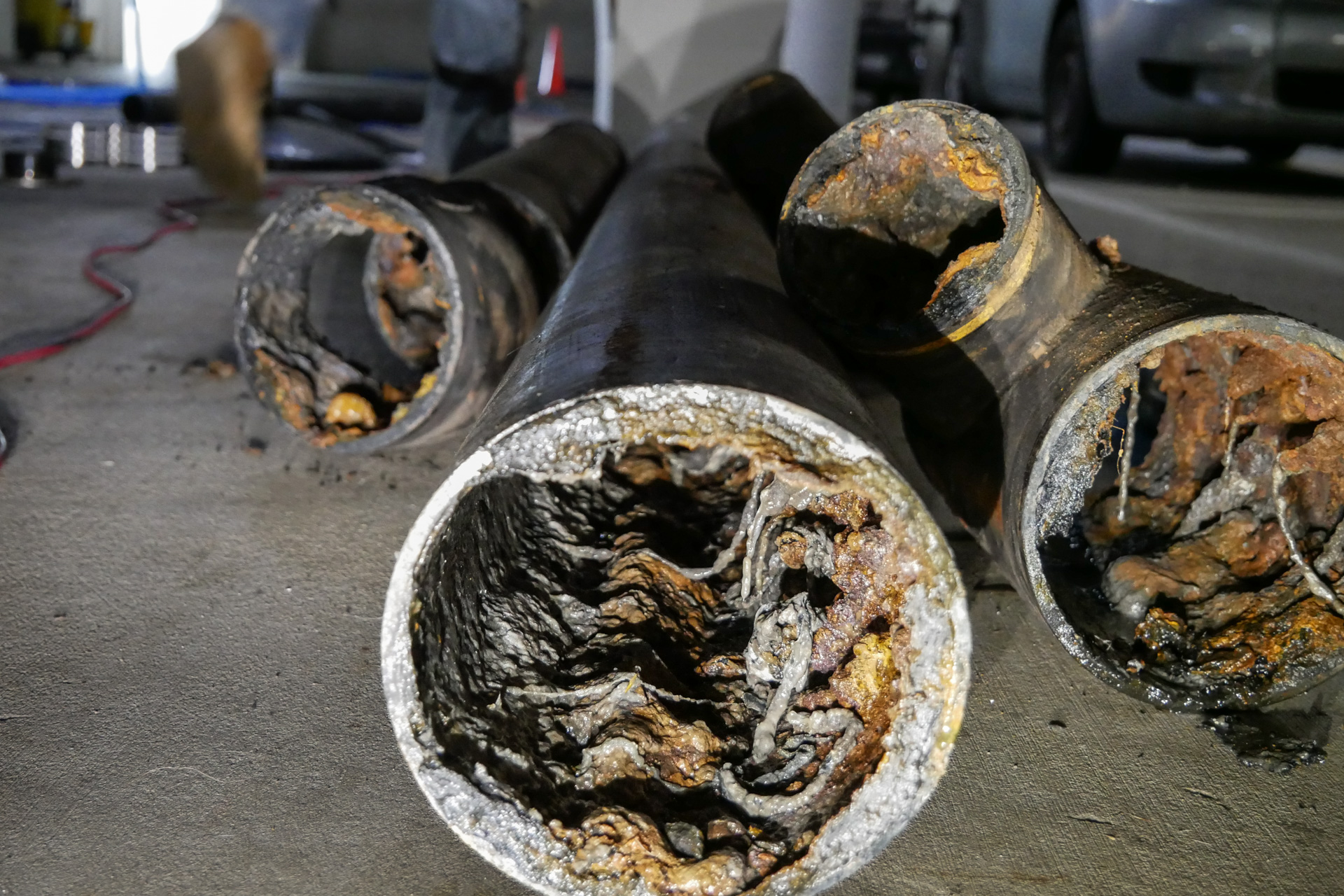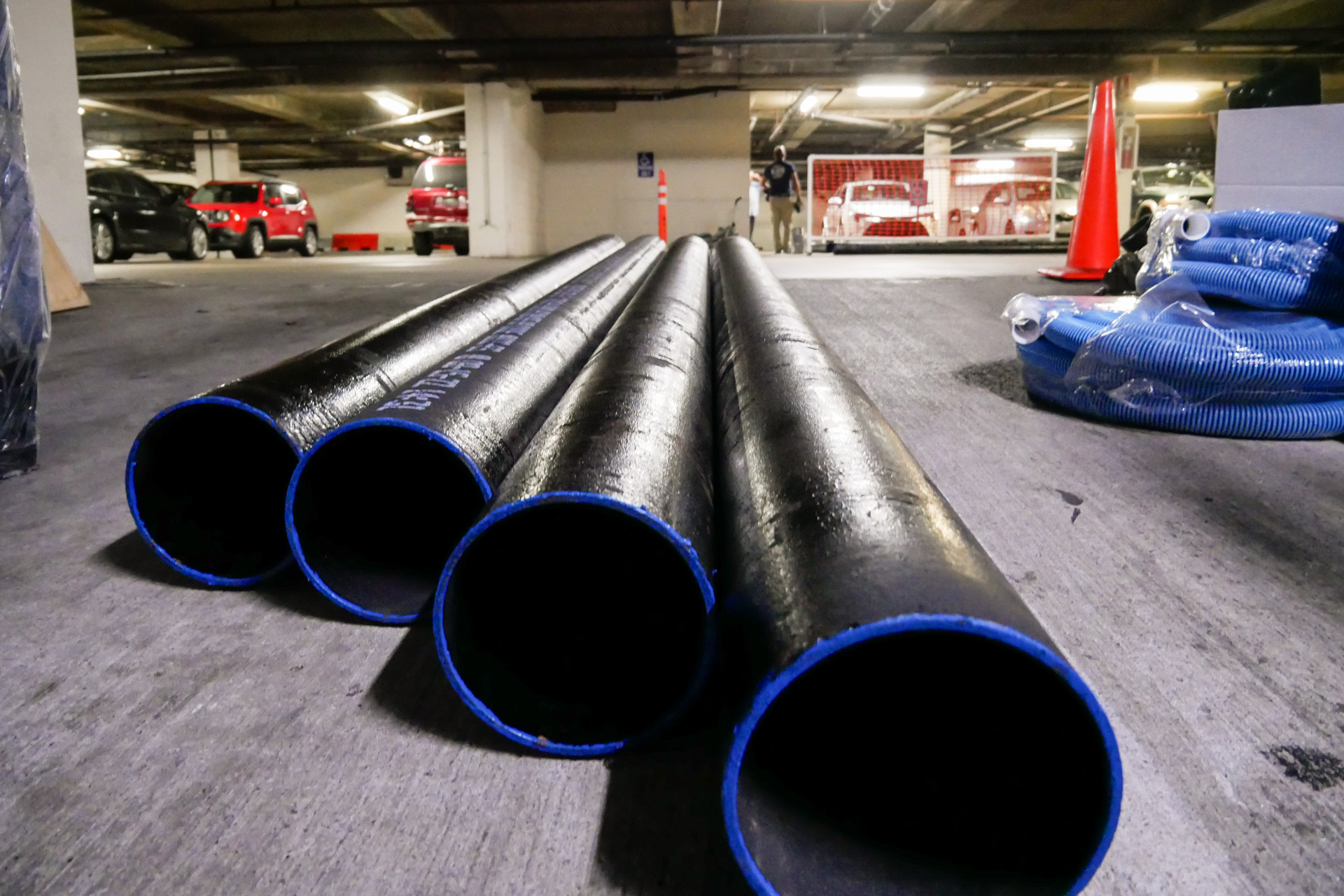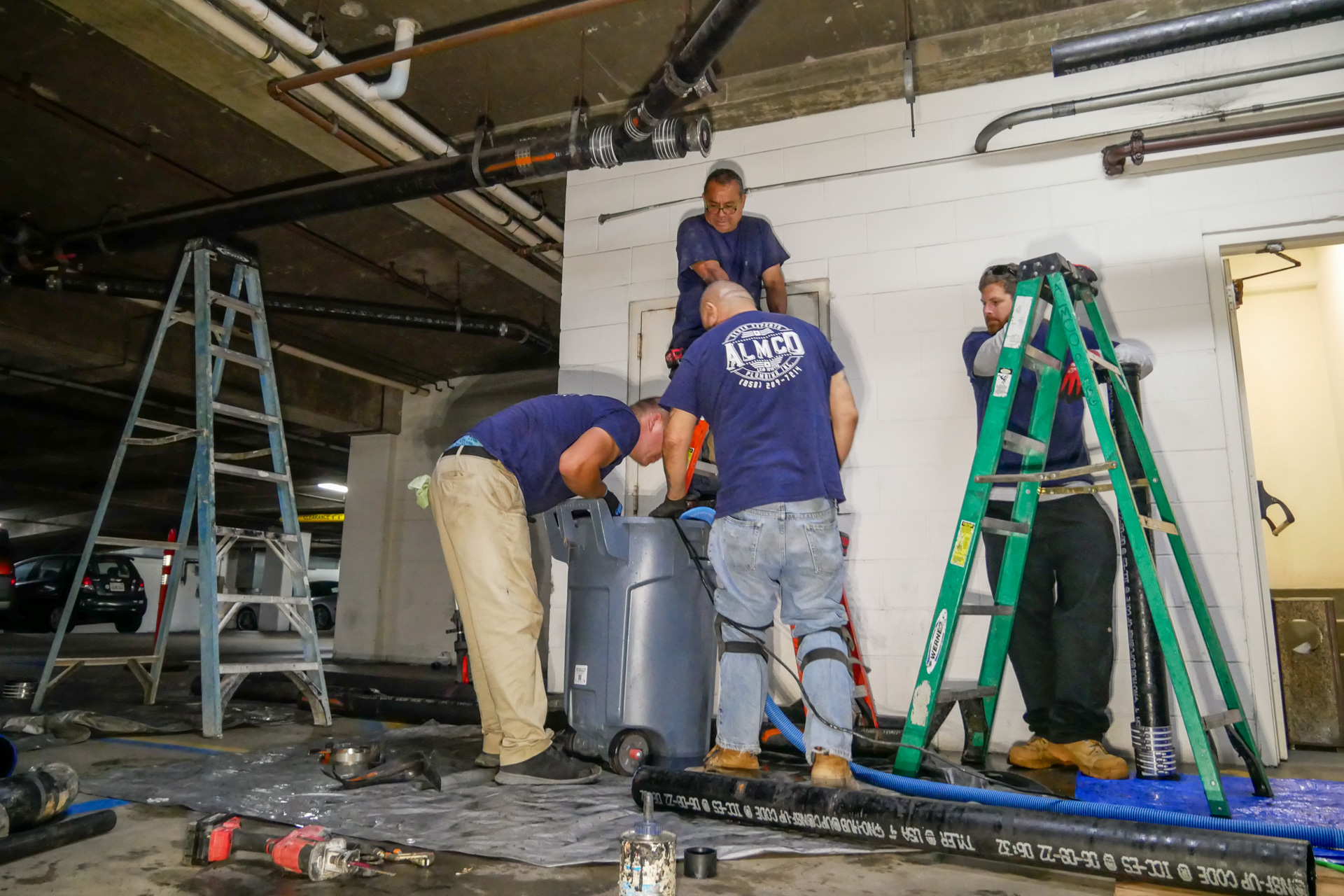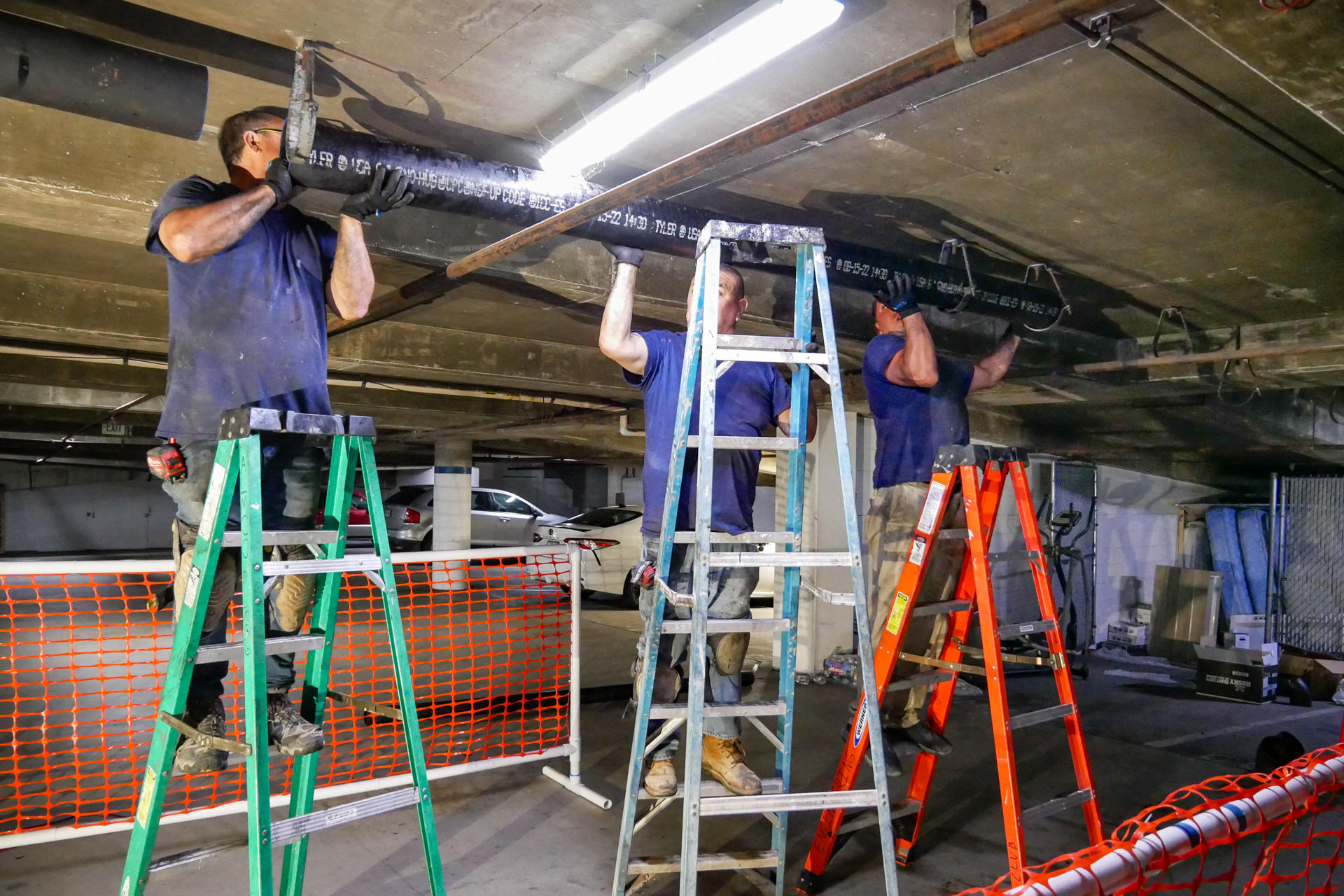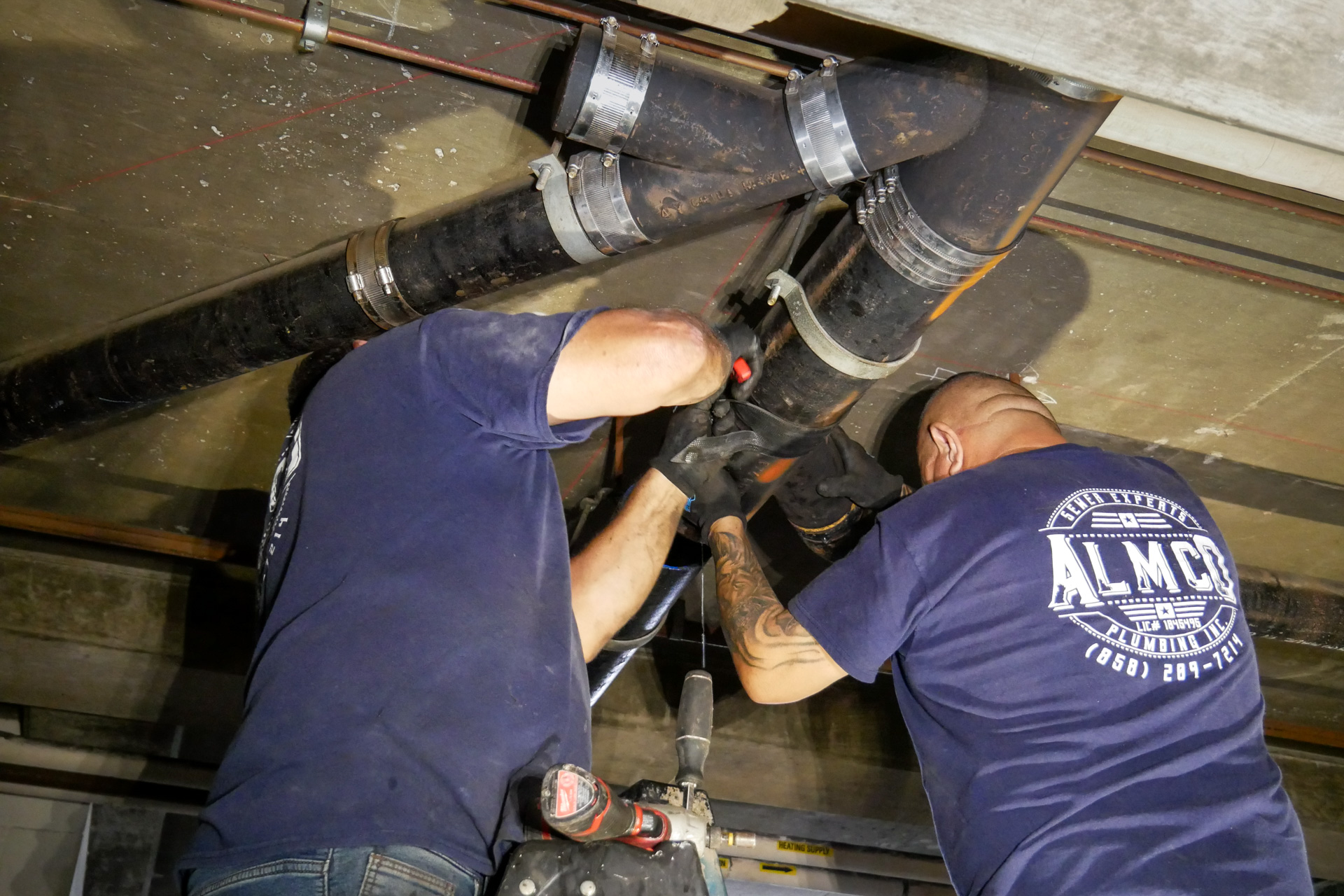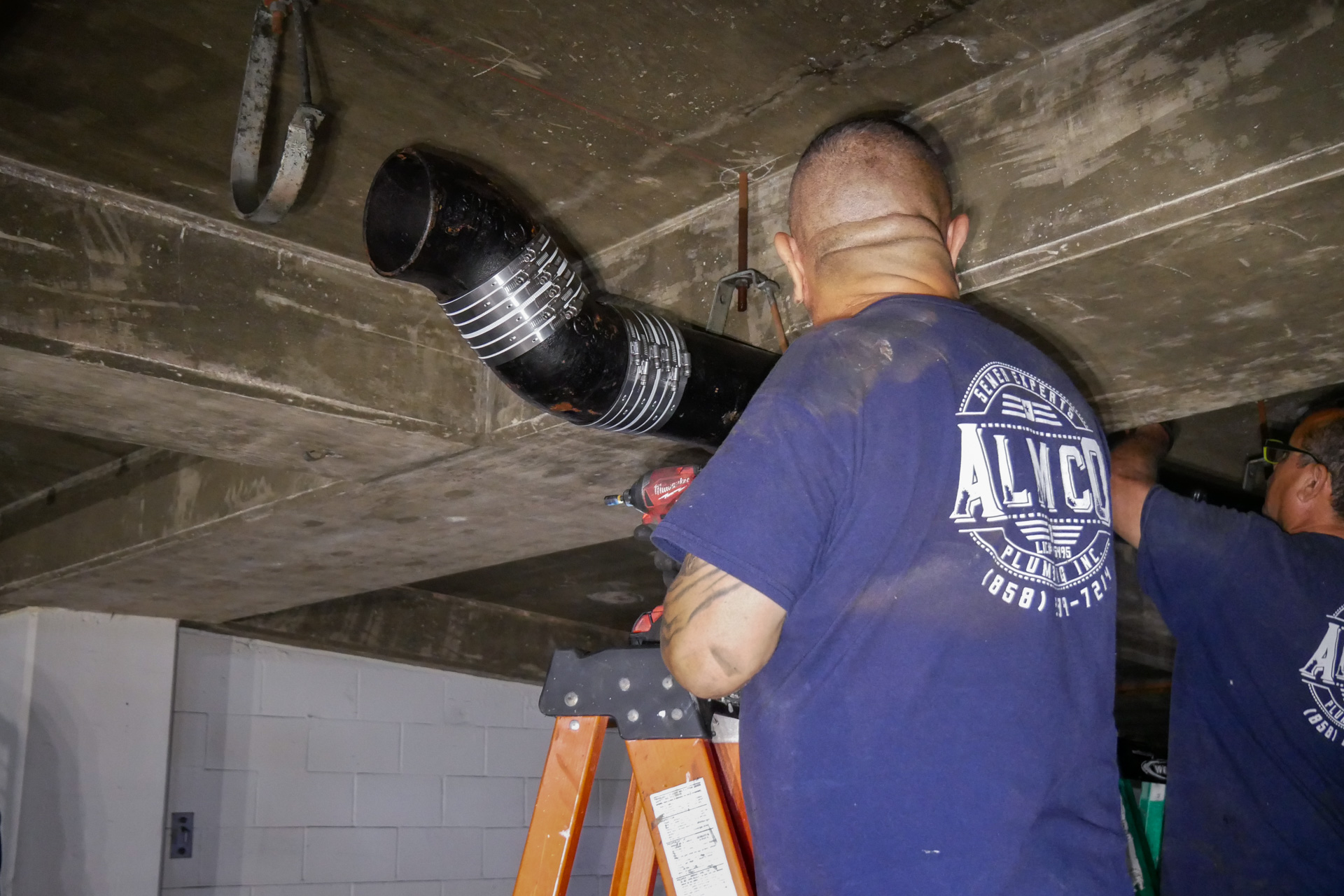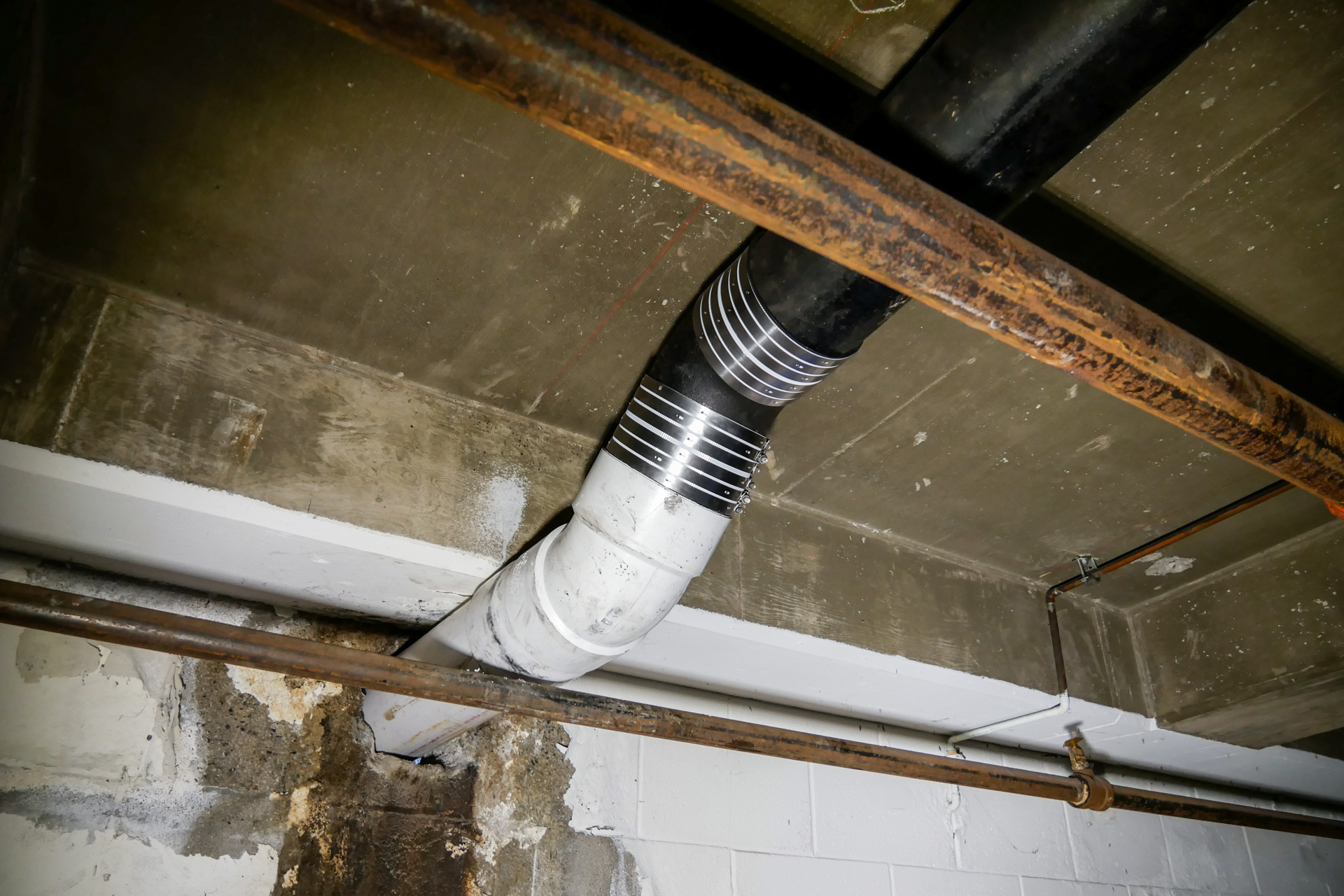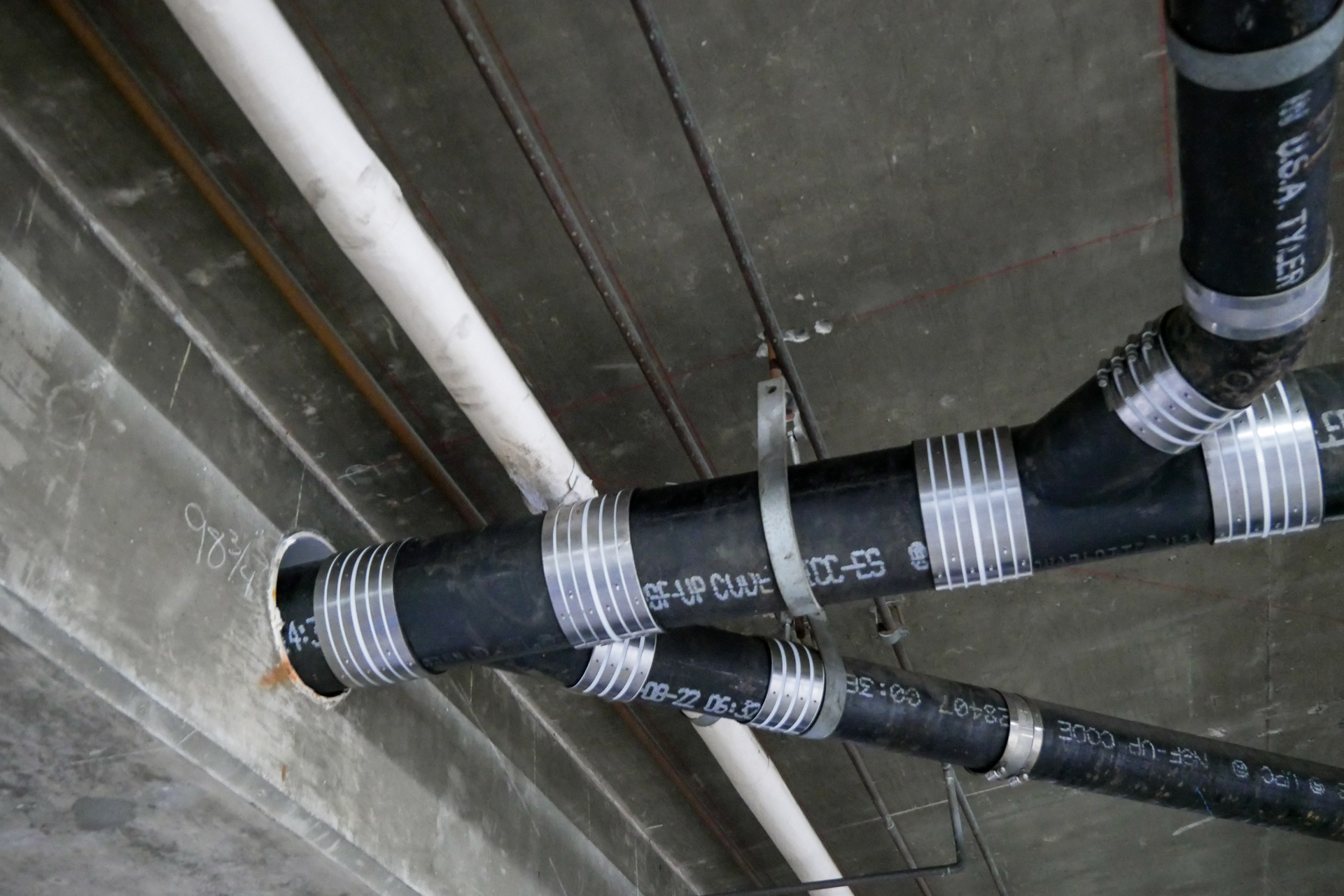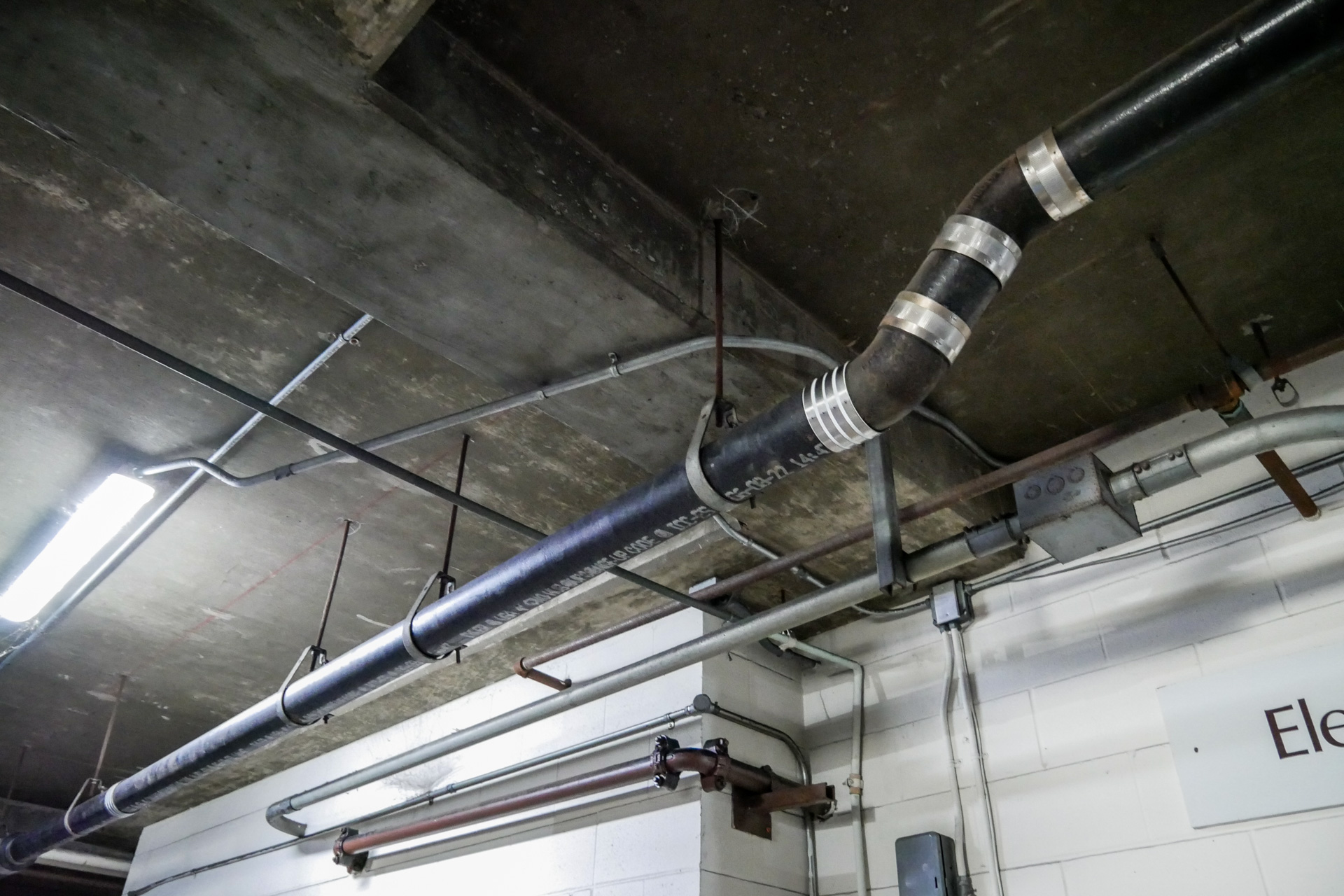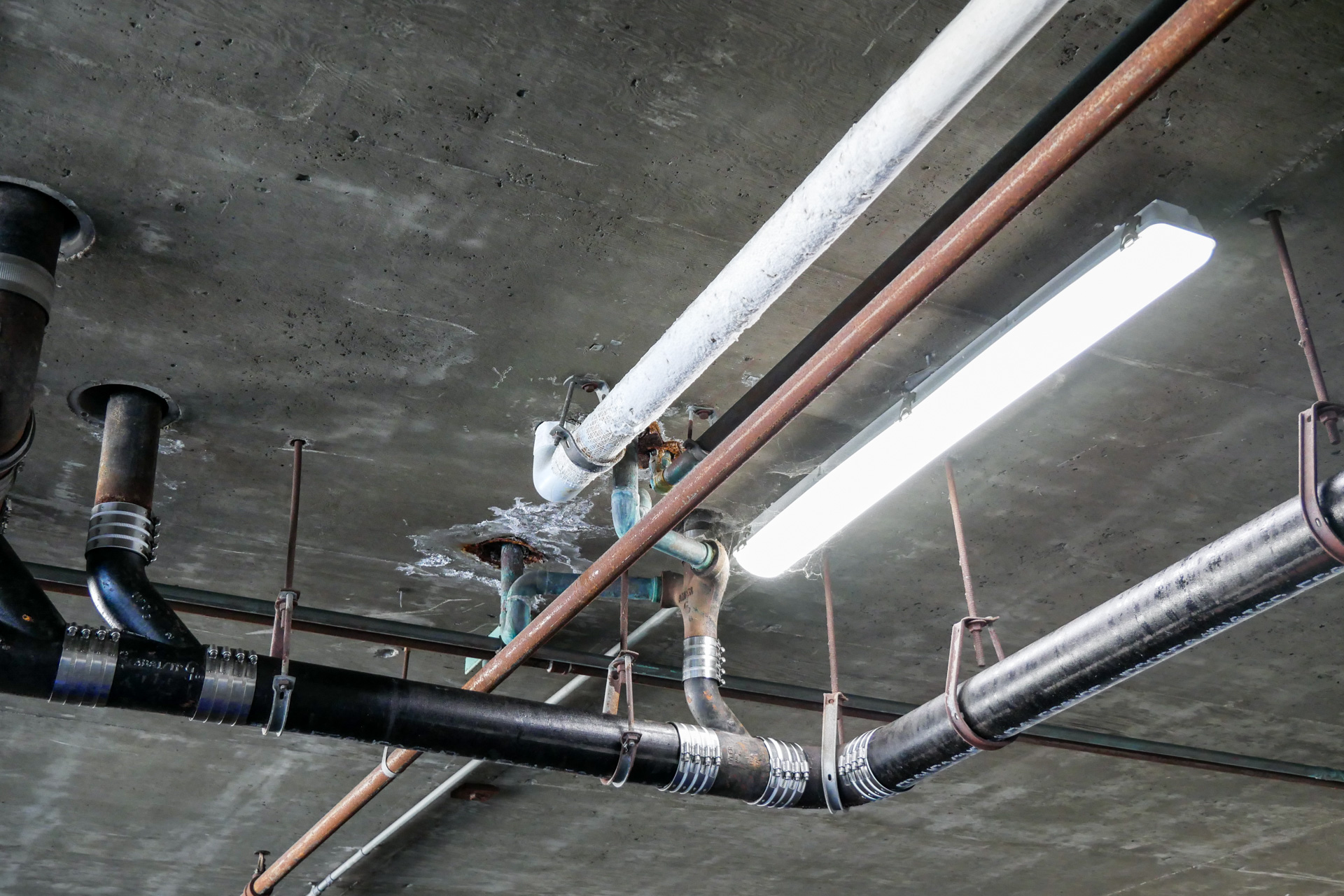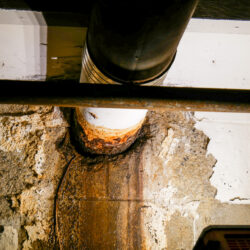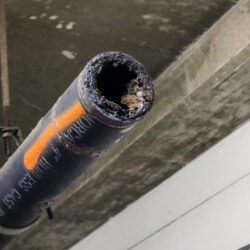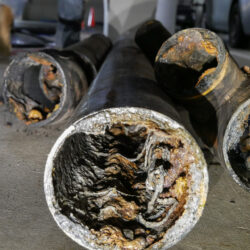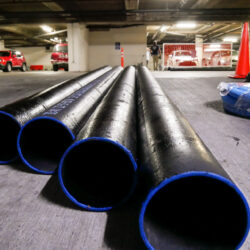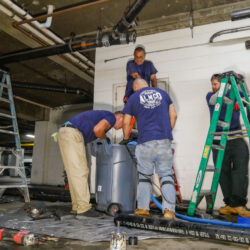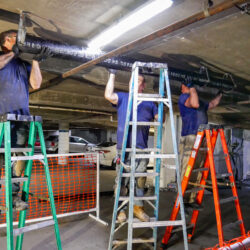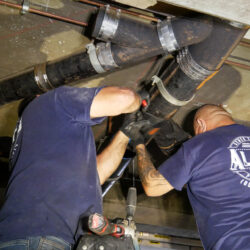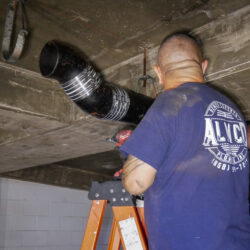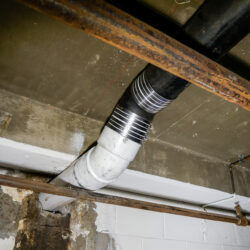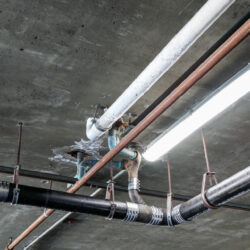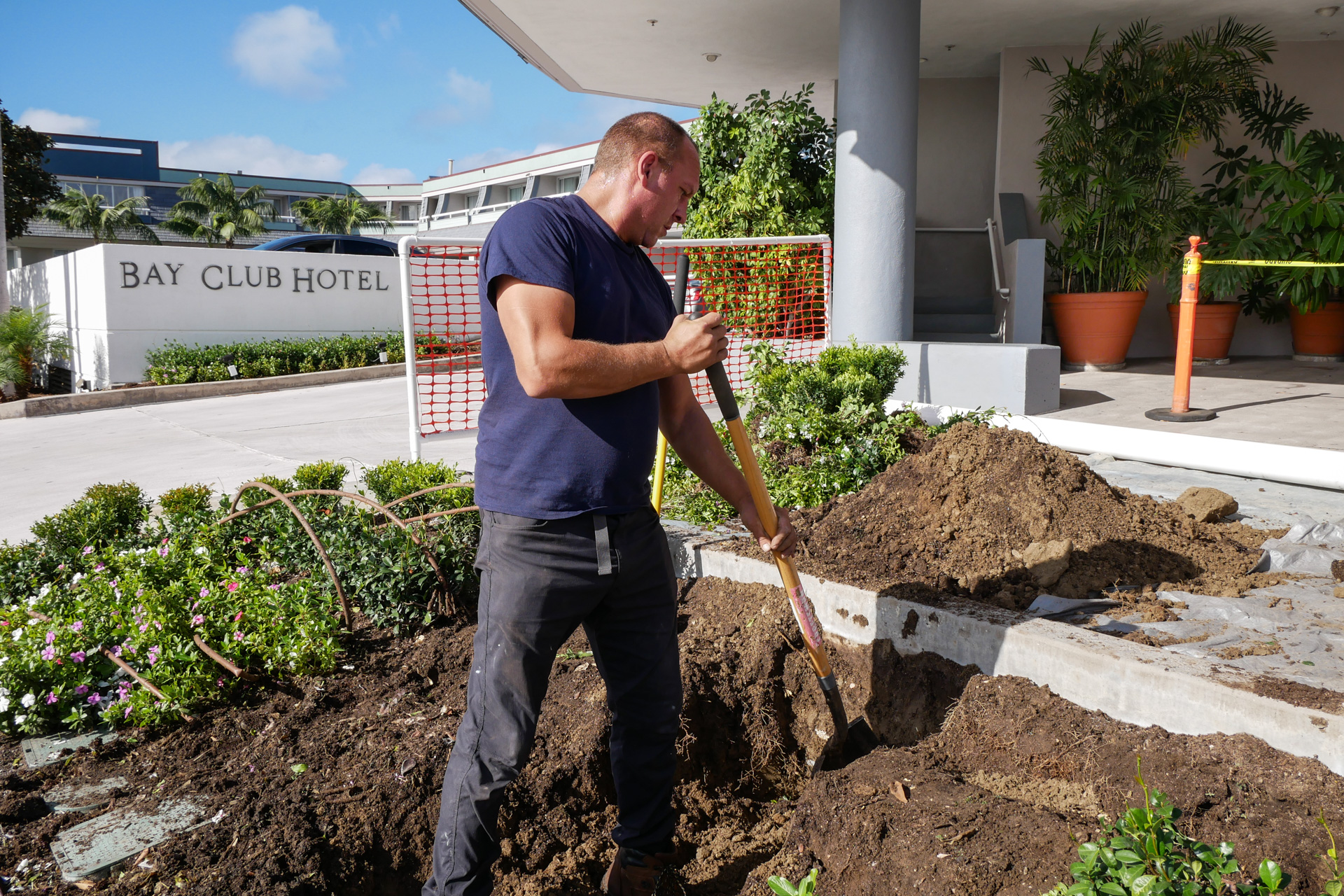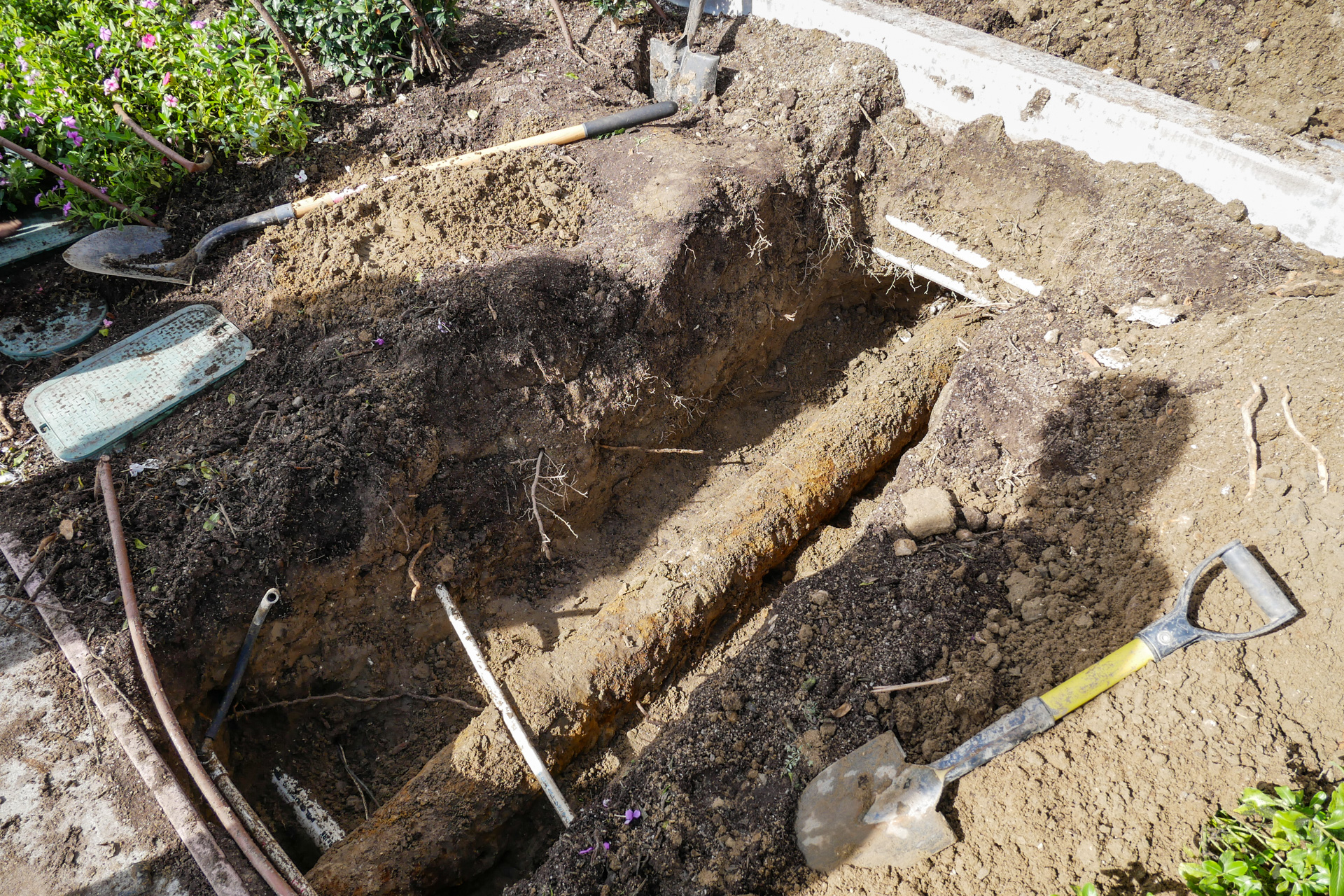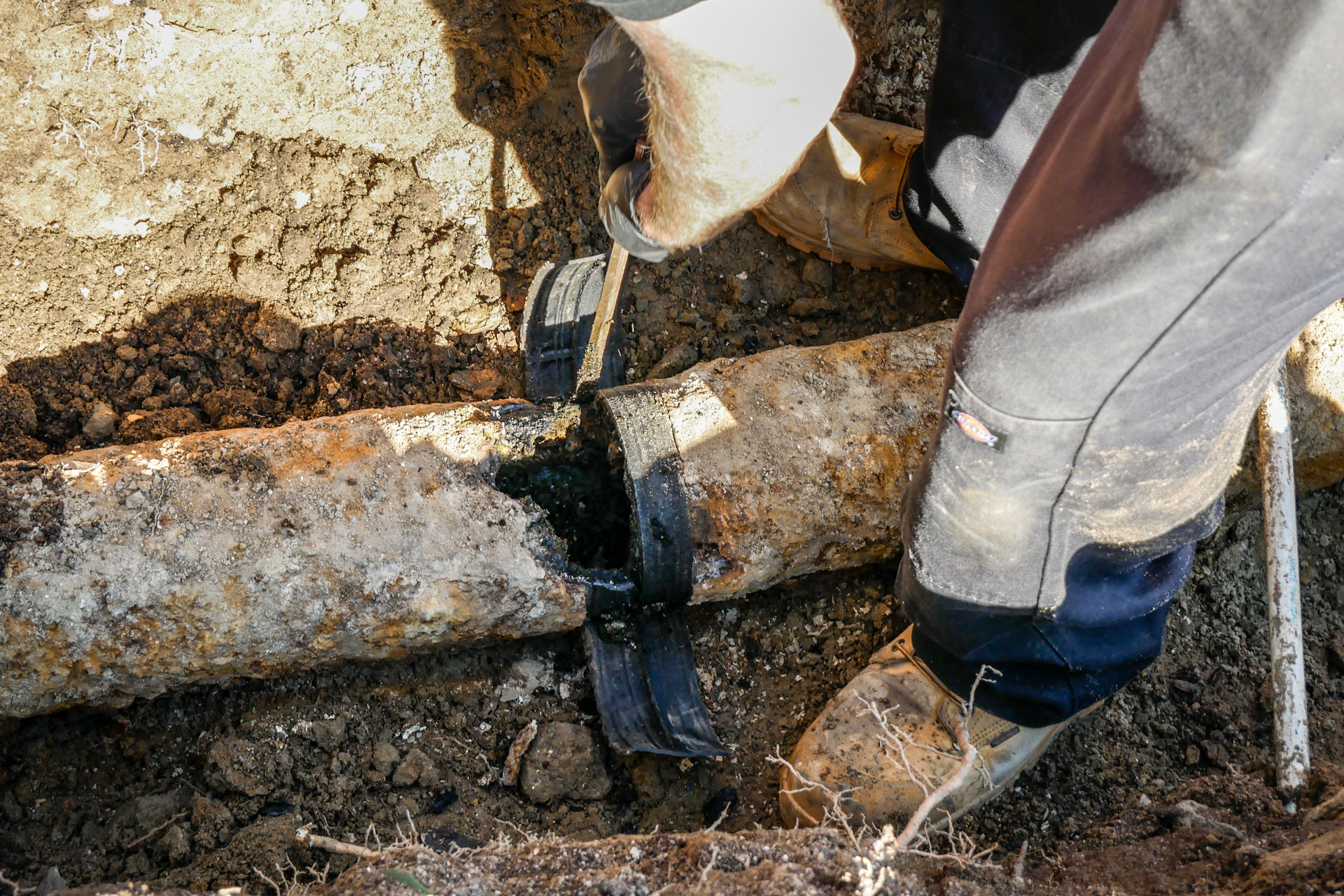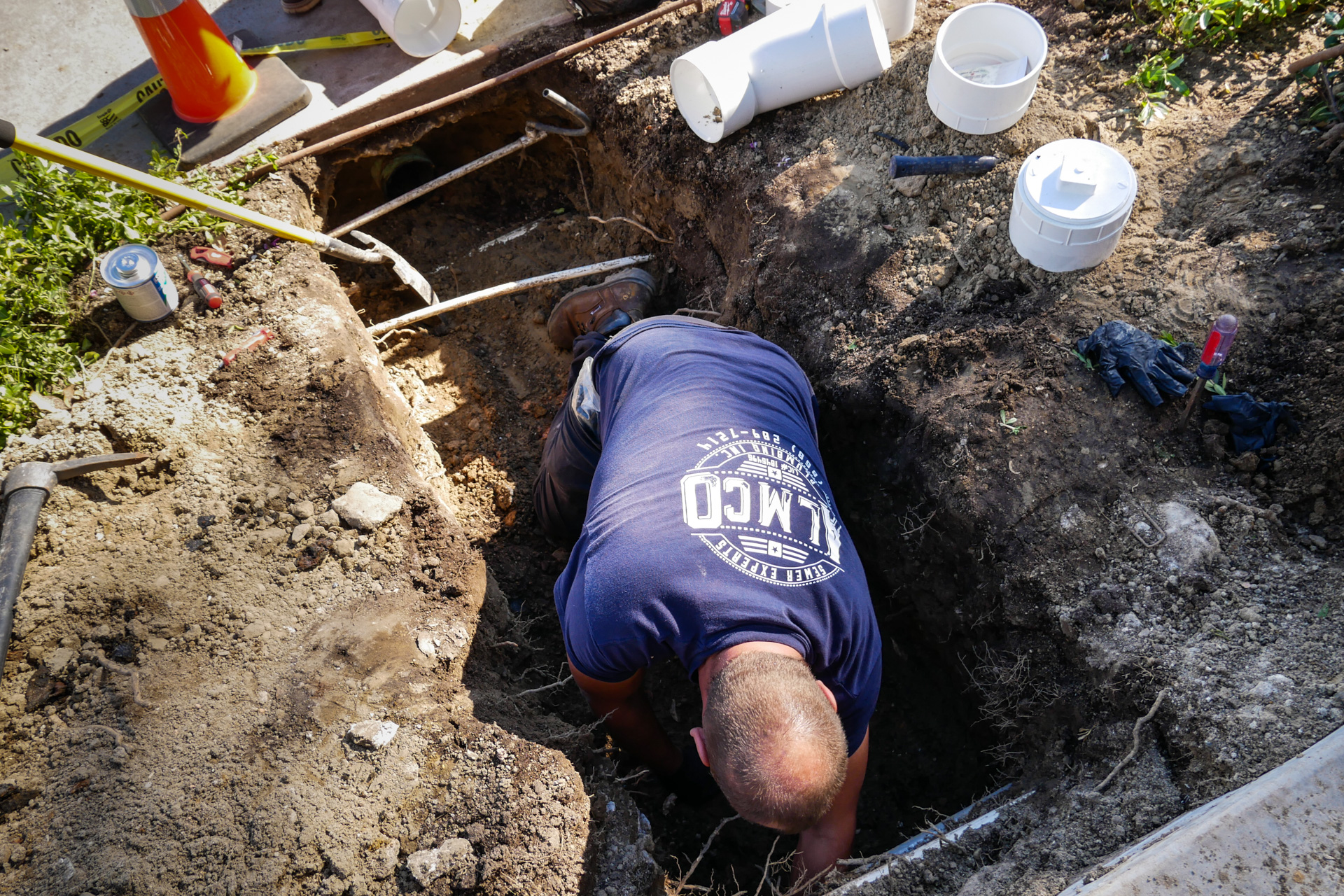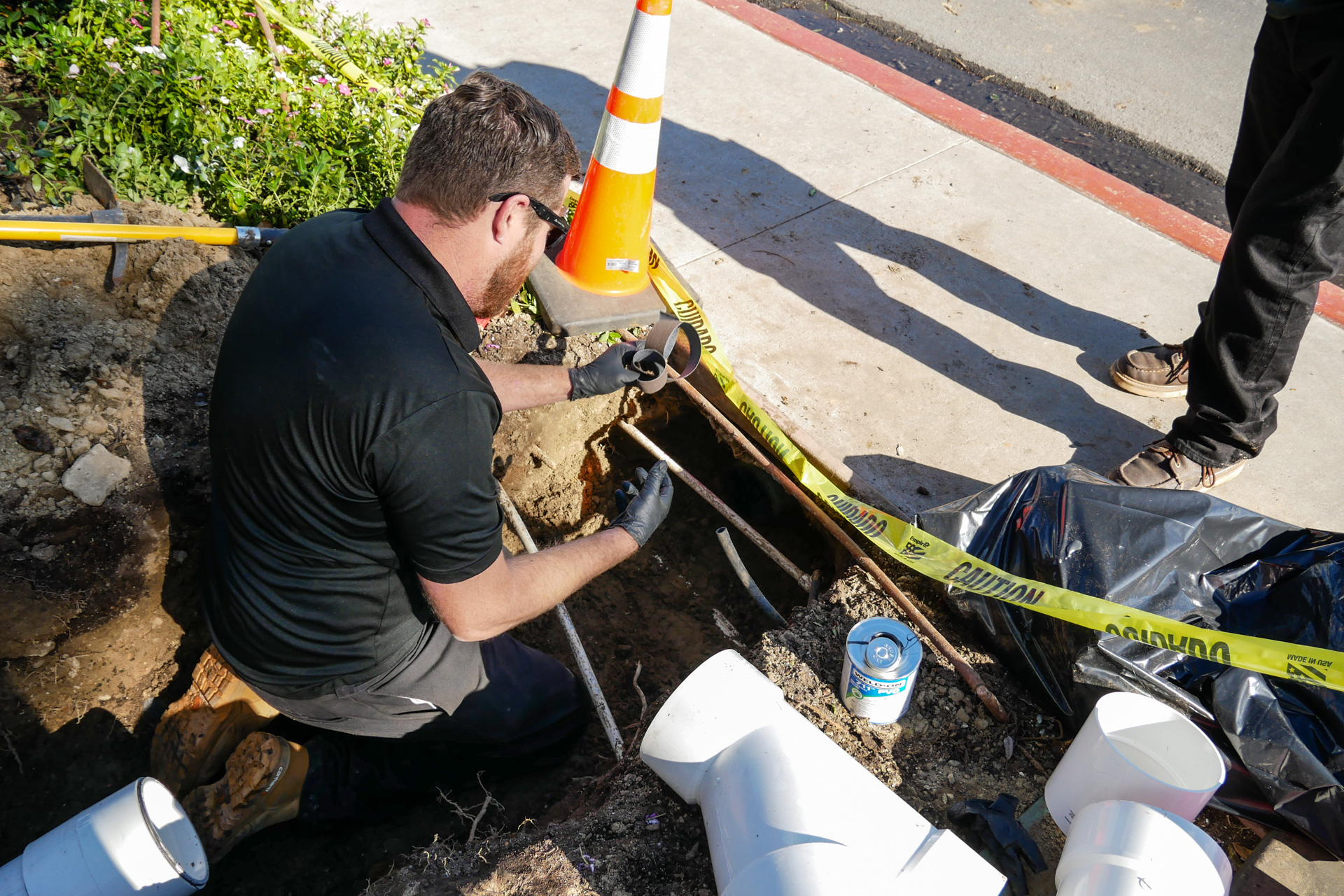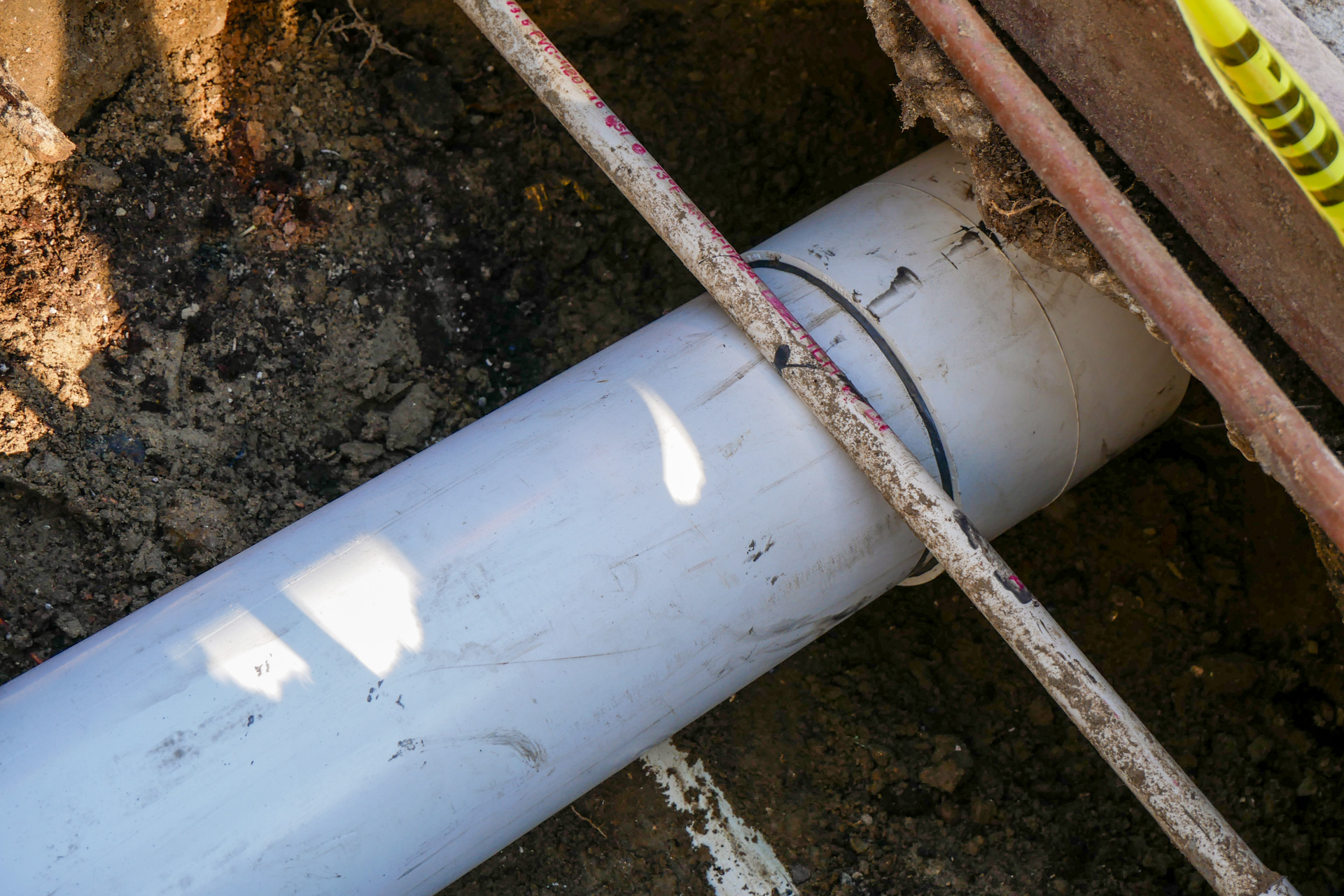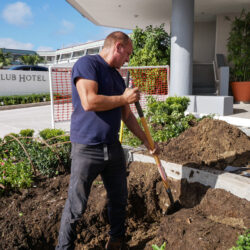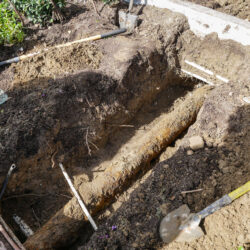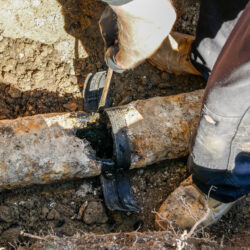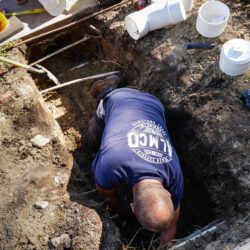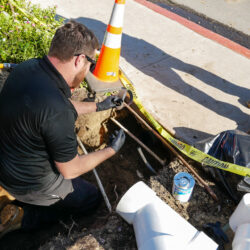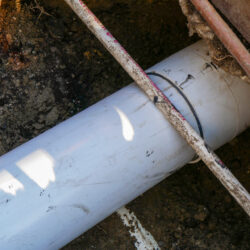Sewer System Repair at Bay Club Hotel: How to Replace a Hotel’s Sewer System Without Any Downtime
Replacing sewer lines in buildings with high operational intensity is one of the most in-demand plumbing services for clients such as hotels, beach clubs, and other leisure establishments. In the case of the project at The Bay Club Hotel & Marina, Vlad Khorenko, CEO of Almco Plumbing, shared the company’s approach to tackling this challenge. The approach enables the repair of the sewer system without the need to close the establishment for extended periods. In addition to the significant cost savings for the client, this method helps demonstrate the client-oriented approach of the establishment.
Below are the methods, materials, and technologies employed by Almco Plumbing to address this task.
Contents
Reasons for Replacing the Sewer System in the Underground Parking Garage
The effective operation of engineering systems in public buildings requires regular maintenance and timely upgrades. The Bay Club Hotel, located on Shelter Island, faced a critical situation: a wastewater leak threatened to completely flood the underground parking garage.
The main reason for the emergency replacement was the severe corrosion of the old cast-iron pipes, which had been in use for decades in the hotel’s sewer system. The leak that developed had already flooded part of the garage before it was detected. Ignoring the issue further deteriorated the building’s operational performance. Additionally, the pipeline, located above the garage ceiling, was leaking onto guests’ vehicles in the underground parking lot, causing inconvenience.
Given the high occupancy level of the hotel, the repair work had to be completed as quickly and efficiently as possible. To address the issue, it was proposed to temporarily relocate guests from the section of the hotel undergoing repairs to another wing to ensure their comfort during the work.
Prep Stage & Planning
Before starting the repair work, the engineers at Almco Plumbing thoroughly reviewed the hotel’s blueprints and utility systems. It was decided to divide the entire scope of work into two main sections:
- Section 1: Work in the underground garage, which required the restoration of the concrete wall, replacement of old pipes with new ones, and sealing of all connections.
- Section 2: Excavation work in front of the hotel’s main entrance, including trench digging, replacement of the external sewer pipe, and subsequent lawn restoration.
Given the challenging conditions and limited space, the specialists at Almco Plumbing carefully planned each phase of the work. Protective shields with reflective elements were placed, and the repair area was clearly marked with bright yellow safety tape to restrict unauthorized access.
The lawn and plants in front of the hotel were carefully removed, with the plant roots protected by the surrounding soil. The soil was placed on tarpaulin sheets to minimize any disruption. To preserve the plants, they were temporarily relocated to a pre-prepared area and thoroughly watered to reduce stress on the roots.
This approach helped minimize environmental damage and ensured that the appearance of the area was quickly restored once the work was completed. The aesthetic appearance of the hotel is a key element of comfort for many guests of Bay Club Hotel, making the restoration of the exterior particularly important.
Overall, the work was planned in such a way as to minimize disruption for visitors and ensure that the hotel’s operations continued smoothly during the repairs.
Work in the Underground Garage. Section 1
The interior work began with the dismantling of the old pipes. To ensure the hotel operations continued without interruption, the specialists used a temporary sleeve that diverted wastewater into specially prepared containers, which were then pumped out into the city sewer system using pumps. The old cast-iron system was replaced with high-strength polyvinyl chloride (PVC) pipes, which are known for their excellent wear resistance, durability, and environmental friendliness.
Simultaneously with the dismantling of the old system, a pipe opening was prepared in the external concrete wall, which was part of the building’s reinforced concrete foundation. The workers cleaned the pipe opening of rust and scale, smoothed the edges, and treated the internal surface with a cement mortar to prevent potential deformations and extend the lifespan of the entire sewer system. A special dampening seal was also installed between the concrete and the outgoing sewer pipe to minimize the risk of changes in the pipe’s configuration due to possible soil shifts.
The connections were sealed using advanced polyester-based ABS or PVC glue compounds, ensuring absolute protection against leaks and enhancing the system’s durability. Additionally, a new 45-degree plumbing elbow was installed to provide a smooth transition for the flow of wastewater, preventing clogs and ensuring the system operated efficiently.
The specialists also focused on adapting the system to potential loads. The new pipes were designed to withstand high levels of usage, and the use of PVC materials ensured that the system could handle significant volumes of wastewater without the risk of ruptures or leaks.
Excavation Work. Section 2
On the external section, the work began with the careful removal of the turf layer and soil investigation. Additional utility systems intersecting with the sewer pipe were discovered, which required a more cautious and precise approach to address the issue. After excavating the soil using manual tools (shovels and a perforator with a wide chisel attachment), the trench was widened to facilitate the removal of the old pipe and installation of the new one.
All excavation work was performed manually.
The old cast-iron pipe was in critical condition: corrosion had progressed to the point where the pipe structure was practically crumbling at the slightest touch. A sand bedding was created for the installation of the new PVC pipe, providing stability and protecting the system from future deformations.
The workers from Almco Plumbing used specialized equipment to compact the soil, eliminating the risk of settling caused by rain or natural conditions.
Installation of the New System
After the old pipe was removed, the installation of the new system began. The specialists carefully secured all connections using a high-resistance sealing compound based on polyesters—ABS or PVC glue. The six-inch PVC pipe was laid according to all relevant regulations, ensuring a 2% slope towards the collector. Additionally, a rubber gasket and Husky band were used to connect the new system to the city’s sewer network.
Final Stage
After the pipeline installation was completed, the trench was backfilled in layers of soil. Each layer was carefully compacted to prevent soil settling. The plants and turf that had been removed earlier were restored. The use of tarpaulins to store the soil helped protect the area from dirt, and the lawn at the main entrance of the hotel quickly returned to its original state.
Project Results & Conclusion
The sewer repair at Bay Club Hotel demonstrated how proper planning and preparation allow for the successful execution of complex technical work with minimal damage to property and the client’s business. The Almco Plumbing team effectively replaced the six-inch sewer main, resolved the wastewater leak, and prevented flooding in the underground garage. This project exhibited the high level of expertise and teamwork of the company’s specialists.
Timely sewer repairs fully restored the hotel’s system functionality, ensuring the longevity and reliability of the utilities while saving the hotel owners a significant amount of money. The use of modern materials and technologies, along with a thoughtful approach to environmental preservation, allowed Bay Club Hotel to continue providing comfort to its guests and a pristine lawn at the entrance immediately after the repairs were completed.
It’s also worth noting that the use of new, corrosion-resistant materials, such as PVC pipes, greatly improved the operational characteristics of the pipeline system. For many years to come, the hotel will not face similar issues with its sewer system.
